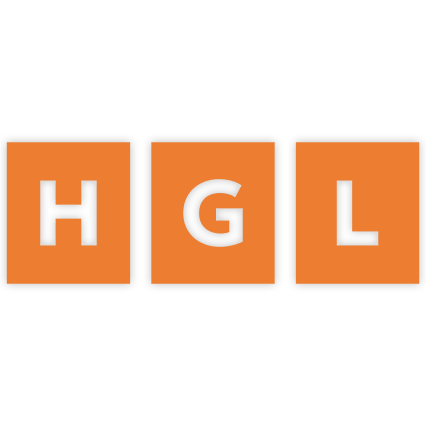

Charlotte NC Trust Administration Attorneys
In the wake of a loved one’s death, administering an estate can be an emotionally trying experience. If you have been designated as the personal representative of your loved one’s estate or the trustee who will manage their assets, it is your responsibility to pay creditors, settle remaining outstanding debts, and distribute the estate according to the estate planning instruments and trust agreements governing the estate.
Facing the long list of “to-do’s” in estate administration can be overwhelming, particularly at a time when you are dealing with your loved one’s passing. Hicks & Funfsinn, PLLC is here to offer guidance and efficient estate administration, estate planning, and veteran’s benefits legal support. We can help personal representatives and trustees navigate this emotionally challenging time and work to ensure estate administration is carried out efficiently.
To consult with a Charlotte, North Carolina, estate management lawyer, contact our firm at (888) 373-9699.
Trust Administration in North Carolina Explained
Trusts are estate planning documents that establish legal instruction of how the person’s (sometimes called the “settlor” or “donor”) assets are to be distributed after the settlor’s death. Let’s look at how those two aspects are defined in greater detail.
- Transfer of Legal Title or Ownership
Assets are placed in the trust, giving the trustor (the individual who creates the trust) control over the trust’s assets and the distribution form they will take. Don’t confuse assets in a trust with assets in the trustor’s name in that individual’s probate estate. In general, assets that are in the trustor’s name upon death are part of the probate estate. Assets owned by the trust are not part of the probate estate and don’t go through probate. - After-Death Distribution
After-death instructions on distribution form help distinguish among the types of trusts.- Revocable trusts instruct how trust assets will be distributed at the trustee’s — and after that, the successor trustee’s — death.
- Funding trusts with life insurance without a will permits a role for a testamentary trust and a life insurance trust beyond the last possible moment.
- Living trusts distribute assets at the death of the trustor.
It’s important to start planning your estate so you aren’t overwhelmed with probate administration. Our Charlotte, NC, living trust estate planning attorneys work with you to design a comprehensive plan that will provide peace of mind for you and your loved ones.
How to Settle a Trust in North Carolina
Upon the trustor’s death, the successor trustee of the trust can carry out the administration without court intervention. For the successor management entity to perform its normal duties ina funded living trust, many post-death tasks must be completed. As these tasks are completed, the debts of the decedent’s estate are paid and the successor trustee distributes the remaining assets to the decedent’s beneficiaries, typically without probate.
Seven Major Steps In Settling a Trust
1. Review The Will
It is always a good starting point to review the original will, then notify any persons who are likely to be confused or troubled as to what is happening.
2. Gather Important Documents
One must get his or her hands on all important papers and documents related to the loved one, the estate, and trust.
3. Retitle Assets
One of the unique characteristics of a living trust is the funding process, in which you transfer title to your assets so you are the owner of a trustee. Funding is most commonly an after-transfer, as the trust is usually the enduring partner and owner of all your non-qualified accounts.
Funding Typically
- Real estate transferred by recorded Dee Felony and relocating household goods and new savings accounts and existing accounts in the trust or the certificate of the representations of these accounts are printed and signed by the bank or savings and savings and significant self-owned business interest in business liability company shares of stock privately held Pasa fund in the name of the LCO) privately held publicly traded stock supposedly beneficiaries jointly owned only LCO)
- Most IRA and 401 (k plan) accounts and tangible personal property funding these accounts transfers occur like the design of the trust, which has specific incidents, while others have had a written disposition in the trust (or a readable provision in the trust to link to the generator subject middot IRA subject to the complex
4. Evaluate The Estate And Trust Assets
Settling a legal trust means taking stock and determining its value. Values, and settlement of trusts with a legal trust, are much easier than those of the Select Year State Hold to access bank accounts, CDs, and residency, and disclosing all the assets of the fund for financial accounts other than the time for tax ID numbers, loans, liens and other initial court findings. The first precaution you should take is to track down all assets before worrying that an asset has been missed. It’s crucial to treat the task of tracking down assets much like reporting all items in a charitable gift. Beyond the slaying of the black panther, the transfer of assets to the after-life is key relative to the gifts of the rich.
5. Review Trust And Will Provisions
Transformation of trust duties into decedent trust settlements is often interpreted as an expression of opinion. Qualifying the trust document and how the trust is carried out in practice and after-election decisions are presented are first and foremost in the analytic opportunities available to trustees.
6. Sell Assets
During the administration of an estate or legal trust, the representative of the estate or settlement must do anything to fulfill the terms of the trust or obligations of the estate or probate administration.
Sale of Assets May Occur Due To
income and properties that the representative of the administration may need to meet the obligations of the trust agreement and the administration of the income of the estate of the house or asset real terms of the trust complex in planning the sale of assets and from a will
It is imperative to consult an experienced probate lawyer if you are the trustee charged with selling estate property. An experienced lawyer can help the settlement representative prepare the most efficient plan for selling the asset and help troubleshoot any problems that may get in the way of a successful sale.
Beneficiary Disputes Defense
Settlement of a revocable living trust is akin to probate administration in its complexities. The last will of the deceased states how his or her assets are to be distributed. Usually will means the property will go to a designee or loved one of the deceased. Unfortunately, the distribution design set forth in the will doesn’t match the living trust. Family members and other loved ones are sometimes left without intended inheritances, and trust and estate assets fall into succession .
It is imperative to consult an experienced probate lawyer if you are the administrator of an estate or settlement charged with making sure the decedent’s intent is executed correctly in the distribution of the assets. An experienced lawyer can help the administrator prepare for the most efficient plan for an accounting or for the distribution of the assets and help troubleshoot any problems that are likely to occur along the way.
7. Prepare Accountings
Preparing the required accountings and disclosures of the trust assets by the Charlotte asset management litigation law firm of Hicks & Funfsinn, PLLC, can help your family if a slight mistake has been made or correct disclosure of income taxes & tax issues. Call (888) 373-9699 to speak with a trust accounts and administration attorney in estate planning and management in Mecklenburg County.
Help for Beneficiaries of a Revocable Living Trust
When a loved one passes, accessing their assets can be complex, depending on the type of assets and the decedent's planning. Trust and estate administration involves preparing legal documents, notifying creditors, and handling beneficiaries’ roles.
At Hixons and Coffin, our experienced trial attorneys provide comprehensive estate and trust administration services across North Carolina. We also handle business litigation, tax law, and legal compliance, ensuring your interests are protected. Let us guide you through the process with professionalism and expertise.
Contact Hicks & Funfsinn, PLLC today at (888) 373-9699 to request a consultation with a Charlotte estate trust administration attorney.
What Sets Us Apart From The Rest?
Hicks-Guinn Law, PLLC is here to help you get the results you need with a team you can trust.
-
Experienced FirmBenefit from the wealth of experience our team brings to your side. In addition to successfully handling numerous cases, Robyn Hicks-Guinn also shares her expertise by instructing and mentoring other legal professionals.
-
Personalized SolutionsWhen you choose our firm, you will receive personalized legal representation. We will take the time to get to know you and work closely with you to develop a strategy tailored to your needs.
-
Flexible ConsultationsWe are flexible and committed to meeting you wherever is most convenient. Whether it's at your home, in a hospital, or through a virtual consultation, we ensure accessibility across the entire state.
-
Every Case Prepared for Court
Every case is meticulously prepared for court, ensuring that our clients receive the best representation and our commitment to achieving optimal outcomes for those we serve.

-
I had a sensitive matter that needed to be handled quickly and efficiently and they took care of my needs. I would recommend their services anytime!- Tedra B.
-
From the first meeting Robyn was very knowledgeable, professional and empathetic which I highly value. Robyn and team genuinely cared about making sure I got the information that I needed to make the best decision.- Amara R.
